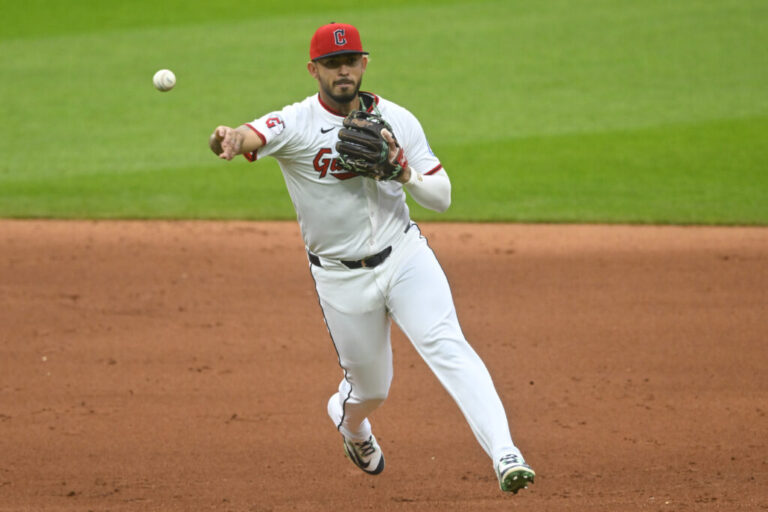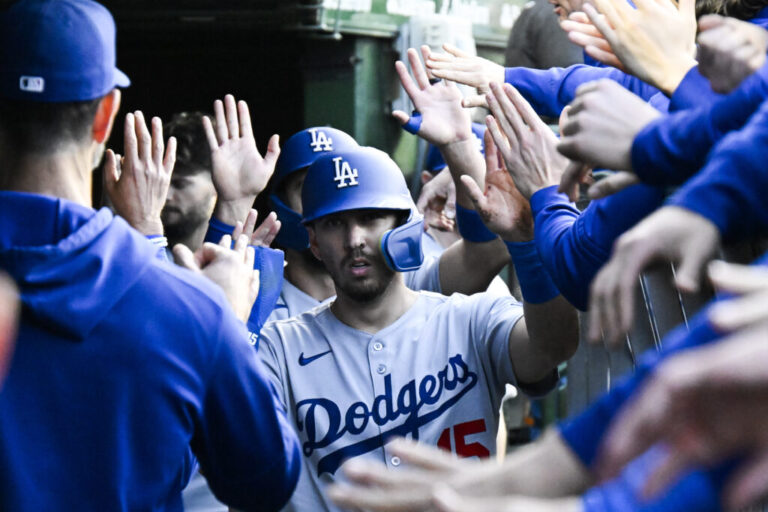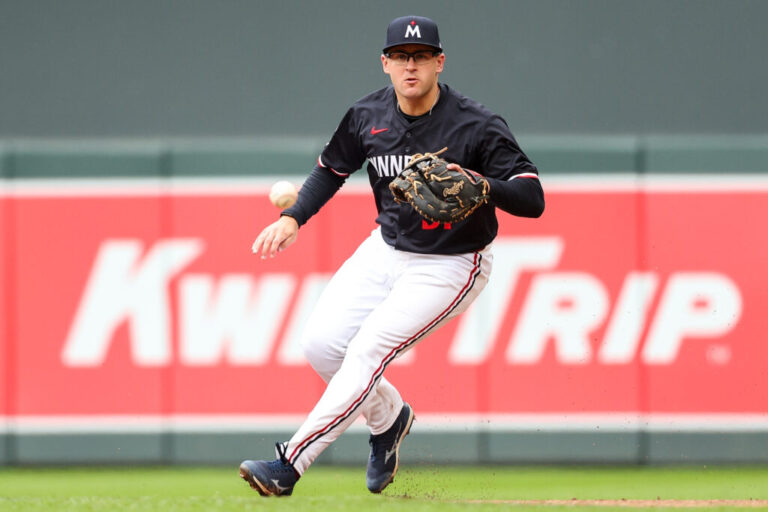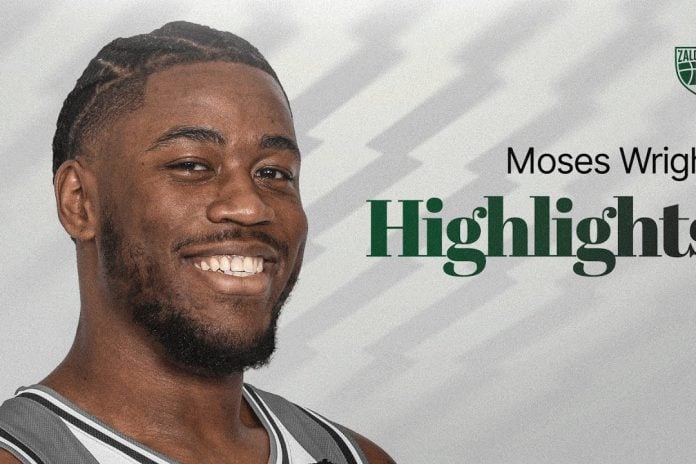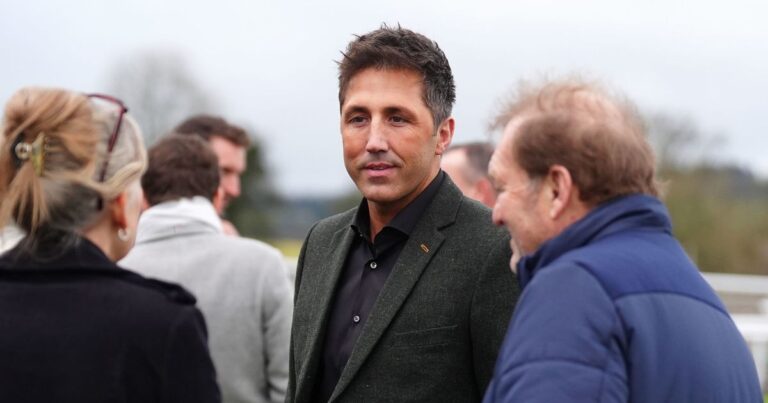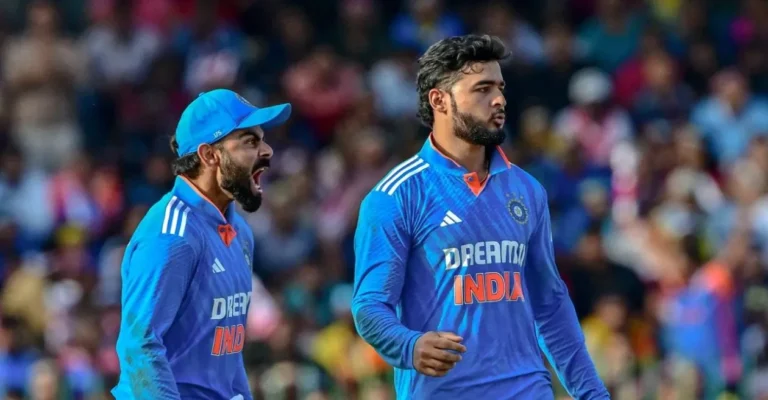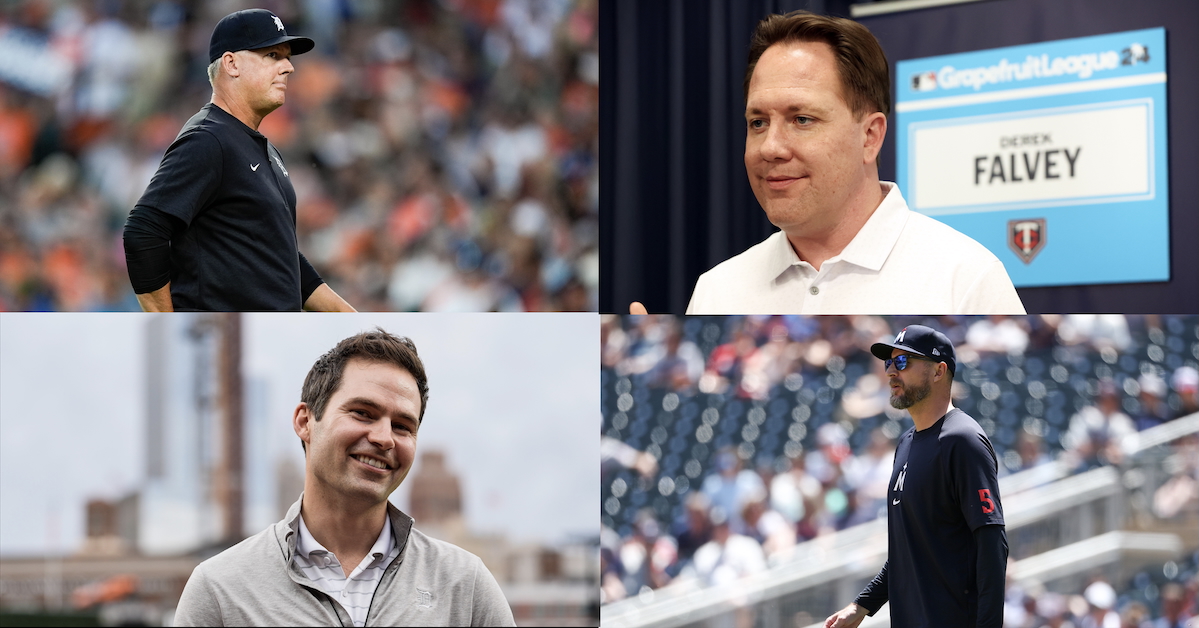

The Detroit Tigers and the Minnesota Twins were two of the teams I focused on during last week’s Winter Meetings in Dallas. As such, I attended media sessions for the managers and top executives of both clubs, asking questions alongside reporters who cover the AL Central rivals on a regular basis. Here are some highlights from those exchanges.
———
Derek Falvey on Griffin Jax:
“That’s a good question,” Minnesota’s president of baseball operations said when asked about the possibility of Jax, who logged a 1.94 FIP over 71 innings out of the Twins’ bullpen, becoming a starter. “It’s a conversation we had during the season [and] it carried through to the offseason. It’s a two-way dialogue. Griff has expressed some interest in exploring the idea, but at the same time, he wants to think about what the right next steps are for him and his career. We remain in contact with his agent, and with Griffin, about that… It remains to be determined.”
“It’s a mix of a few things,” Falvey replied when I asked what goes into determining if Jax is well suited for such a move. “Griffin came up as a starter, right? You’re seeing this a little bit more across baseball the last couple of years, where maybe a guy that’s been a starter went to the bullpen, had some effect, and is shifting back. Not to speak for the Mets, or otherwise, but Clay Holmes and the role that he’s going into. Reynaldo López down in Atlanta last year. We saw Michael King with the Yankees go out to San Diego and start. It’s a much more common thing to discuss right now.
“I think the primary determiners aren’t necessarily just arm action and delivery,” added Falvey. “Those things matter. Pitch mix matters. I think Griff will even say he’s a different pitcher now than when he first came up as a starter. He’s got a different mix. He understands what to do to get hitters out differently. But there’s also a conversation with the player about their desire. What do they really want to do? It’s hard to do any of these roles, and you’ve got to be prepared for it. So you want to make sure that everyone is aligned on what the plan looks like, how you build up, and what next year’s innings totals look like. Those are things that you need to discuss in the interim if you’re going to transition somebody.”
I asked whether today’s starters often only going five innings makes such a transition easier.
“It makes it a little easier, maybe,” Falvey replied. “But even that, if a guy throws 60 to 70 innings out of the bullpen in a given season, and the next year he’s going to throw 150, 160, 170 in some cases — where does it land? How do you get there, and what is the right jump? There’s no perfect science to it. I should say there’s no magic to the equation around what the innings should be. You have to be open-minded to discussing it with your trainers, with the player himself, with your coaches, and think about the right way to build up a player in a thoughtful way. There is no way to get the risk to zero.”
Scott Harris on Jackson Jobe:
“He’s going to be a mainstay in our rotation,” Detroit’s president of baseball operations said of the 22-year-old right-hander, who made his major league debut in late September. “I don’t know exactly when we’re going to sort all that stuff out in spring training, but he is one of the most talented starting pitching prospects in baseball. He’s going to get a shot here. We feel like by adding him to the team last year, we gave him an opportunity to get his feet wet, and gave him a chance to get punched in the mouth at this level and identify the areas of his game that he needs to work on this offseason. We think he’s going to be better for that experience. He’s going to be in our rotation at some point, we just can’t confidently say that we know when until we see how he looks in spring training, and how the rest of the starters look.”
I asked Harris if he could elaborate on what, specifically, the young right-hander needs to work on.
“Strike-throwing, pitching different hitters in different ways, trusting his stuff in the zone — even when he gets hit — making sure that he can land all of his shapes to both side of the plate and out of the middle of the zone,” he replied. “His stuff is elite, he’s a really gifted athlete and mover on the mound. But there are still aspects of his game that he can refine in order to get to his ceiling.”
Falvey on Carlos Correa and trade talks:
“I say this every year, but it’s true: We get calls on a lot of our players and we have to listen,” said Falvey. “We have to hear the conversation… What we tell every team is, ‘Listen, we’re open to being creative.’ We can’t rule anything out before we hear it, no matter who the player is. We’ll just be respectful of their process, and what they’re going through, and try and kick some creative ideas around. It’s what led us to the Pablo López trade, or something like that, at different junctures. We have to stay open-minded to those things.
“When [Correa] was on the field, he was one of the best players in the game,” Falvey added. “Ultimately, he didn’t play as many games as we would have liked because of the plantar fasciitis. That was unfortunate, but when he played, he was really good for us. And he’s a leader; he’s a key member of the clubhouse. You expect teams to call on players like that.”
Falvey related that Correa recently had a medical check-in and is “tracking really well.” The veteran shortstop, who also dealt with the issue during the 2023 season, “feels better at this stage than he did last year.”
Harris on Kenta Maeda:
“We modified his training routine in the middle of the season, which coincided with him moving to the bullpen,” Harris said of the 36-year-old right-hander, who struggled to the tune of a 6.09 ERA and a 4.96 FIP over 112 1/3 innings in his first season with the team. “We felt like the stuff started to really tick up in the second half, partly because he moved to the bullpen, and partly because he was working on different things in the weight room, the ‘pen, and in the training room. We felt like he took a real step forward in his pre-outing preparation. Not that he wasn’t working hard before, we just feel like we have a really good group that can make adjustments and get a little more out of these guys. He’s carried a lot of that stuff into the offseason. He’s in Japan right now, and we have regularly scheduled check-ins. He started throwing and lifting a lot earlier this year than he has in recent memory. He’s pretty determined to rewrite the story of his Tigers tenure.”
Harris on Jace Jung and platooning:
“He’s coming into spring to compete to win a job,” Detroit’s top executive said of the 24-year-old infielder, who made his major league debut in mid-August. “Exactly the opportunity that is front of him is going to depend on what we do the rest of the offseason. Situations change super quick [with] one free agent signing, one trade, or whatever. But he’ll have time at third, time at second, and time at DH in the spring.
“We don’t ever go into a position preferring a platoon,” continued Harris. “Sometimes it’s the easiest way to built a ramp to the big leagues for a young hitter — give them the best matchups you can find and then let them earn their way into everyday at-bats. I think a good example recently is Matt Vierling. When we first acquired him, he was ticketed for a role that was predominately against left-handed pitching. Now he finds himself playing just about every day, because he earned those at-bats.”
Falvey on if the Twins have reassessed the amount of platooning they do:
“I think it depends on the personnel,” Falvey said in reply to my question. “I think some guys actually kind of like it. They’re used to that, and they get into that mode, and they just want to face left-handed pitching or right-handed pitching. It’s probably more of a conversation for Rocco, because despite what others think from time to time, we don’t have a Bat Phone to the dugout. He makes those calls. It’s up to Rocco to navigate that with the players. We talk about it in general, but I promise you — and I will stay on record for this forever and ever — I never tell him the lineup, and I never tell him how to use certain guys in-game. That’s his domain.”
A.J. Hinch on if the Tigers have considered turning Tyler Holton into a starter:
“He could do whatever is asked of him,” Detroit’s manager said. “There hasn’t been a ton of conversation about that, given the depth we have and, quite honestly, how good he’s been in the role that we’ve had him in. We use him as much as anybody in baseball, and we try to give him the allotted rest. Not as much as a starter rests, but when he gets stretched out to two, three and four innings, we’re very disciplined with giving him the amount of rest [he needs] before we pitch him again.
“He’s not going to be in the starter competition. He’s that Swiss Army knife where he’s going to pitch probably every inning next year. I don’t know if he did every inning this year. If he didn’t, he got as close as anybody in baseball.”
Holton made at least two appearances in each inning last year, and also pitched in extra innings. Does the versatile southpaw have more value in his current role than he would as a starter?
“If you look at how I use Tyler, he pitches in winning games,” Hinch said to my followup question. “Either he bridges to other guys in the bullpen, or he has closed out games for us. To a manager, the guys that pitch in wins, the guys that can close out wins, the guys that can get you out of tough jams to lead you to a win… my definition of value is going to be how do we create more wins for ourselves? By how comfortable I’ve become using Tyler in any role, he’s pretty valuable to me where he’s at.”
Hinch on if Holton is a unicorn, or if there are other pitchers in the game who could handle his current role:
“I don’t doubt players, ever,” said Hinch. “I think guys can do a lot of different things if you just give them the opportunity. I don’t know how guys would respond to his versatility, the lack of knowing when he comes to the ballpark what part of the game he’s going to pitch in, the variety of lineups that are thrown at him. Some people pinch-hit righties. Some people don’t. He’s a special pitcher for us because I literally — he’s one of the guys I know coming to the ballpark that I have a valuable player to put in the game when we need it the most. That’s a unique skill set.”
Rocco Baldelli on if other pitchers could handle a Holton-like role:
“A big part of that question is not just the physical element; the biggest part of it is probably the mental hurdles that go along with that,” Minnesota’s manger said. “I think a lot of major league players, especially pitchers, like to have a role and know what it is. In their opinion, it allows them to do their job in the in the best possible way.
“I don’t think there are many guys that volunteer for a role like that,” continued Baldelli. “I really don’t. I haven’t thought about guys on our team that would be able to do things like that. But Louie Varland would do anything we asked him to do. If we asked him to open, or close, or pitch a bulk role, or start, he would do any of it to the best of his abilities and be fine.
“What I would say is that more guys are capable of it than they believe. There are a lot of guys that could do it, but I think it is a hurdle, and I don’t think you’re going to find too many guys that are really jumping up and down to do it. So when you find a guy — if you’re looking for a guy that can do it and you find him — that can be very valuable.”
